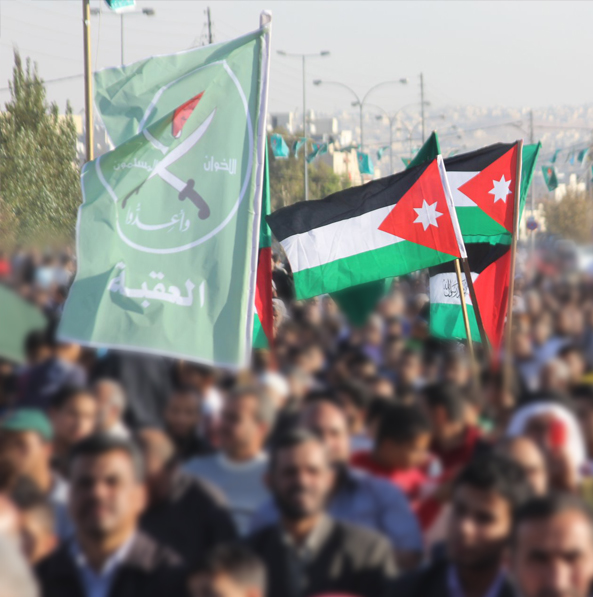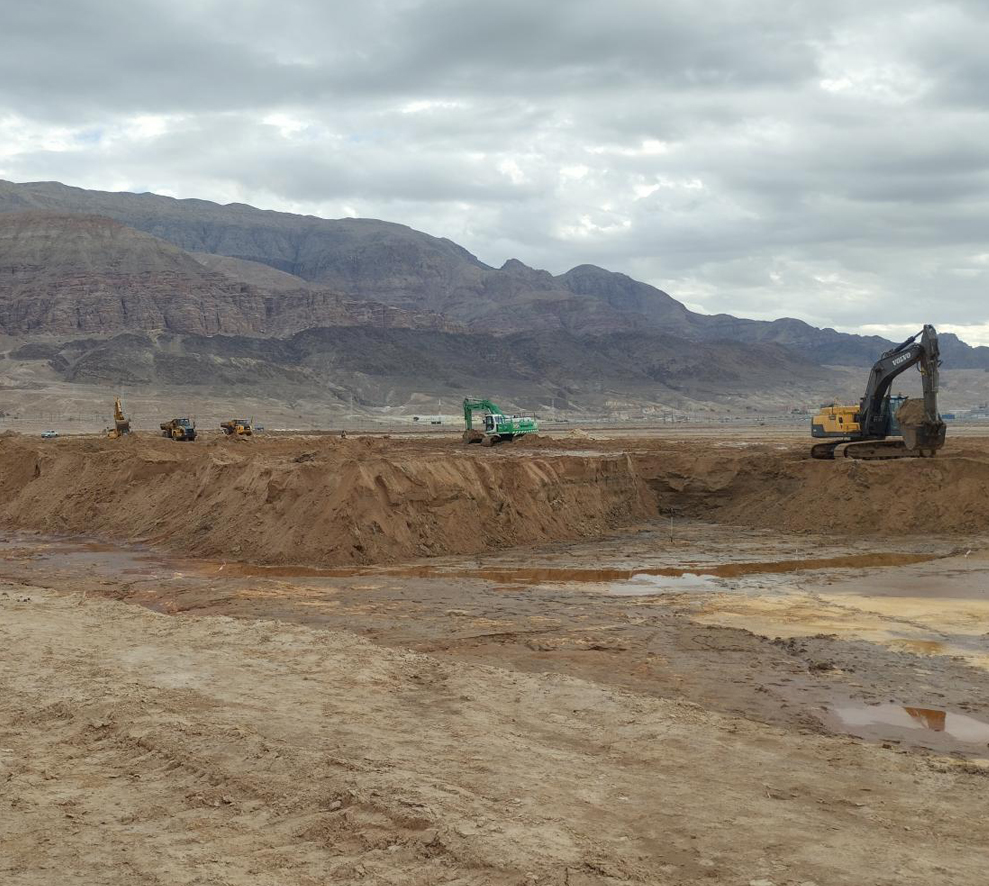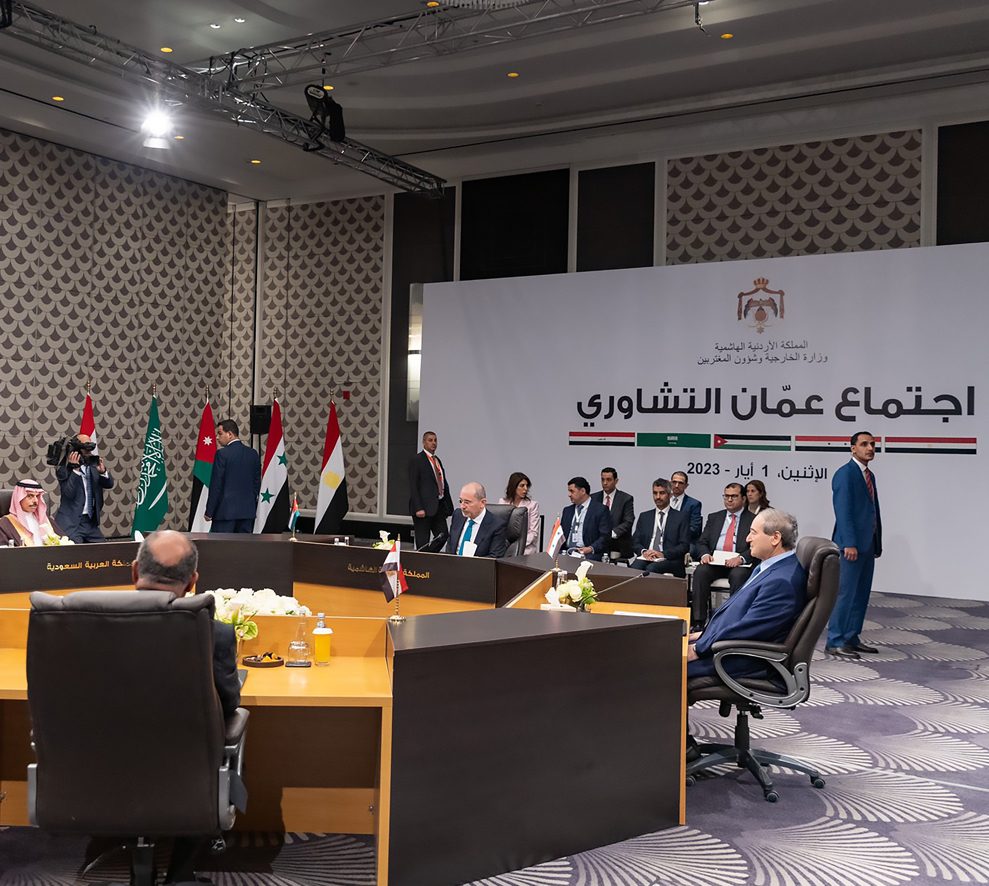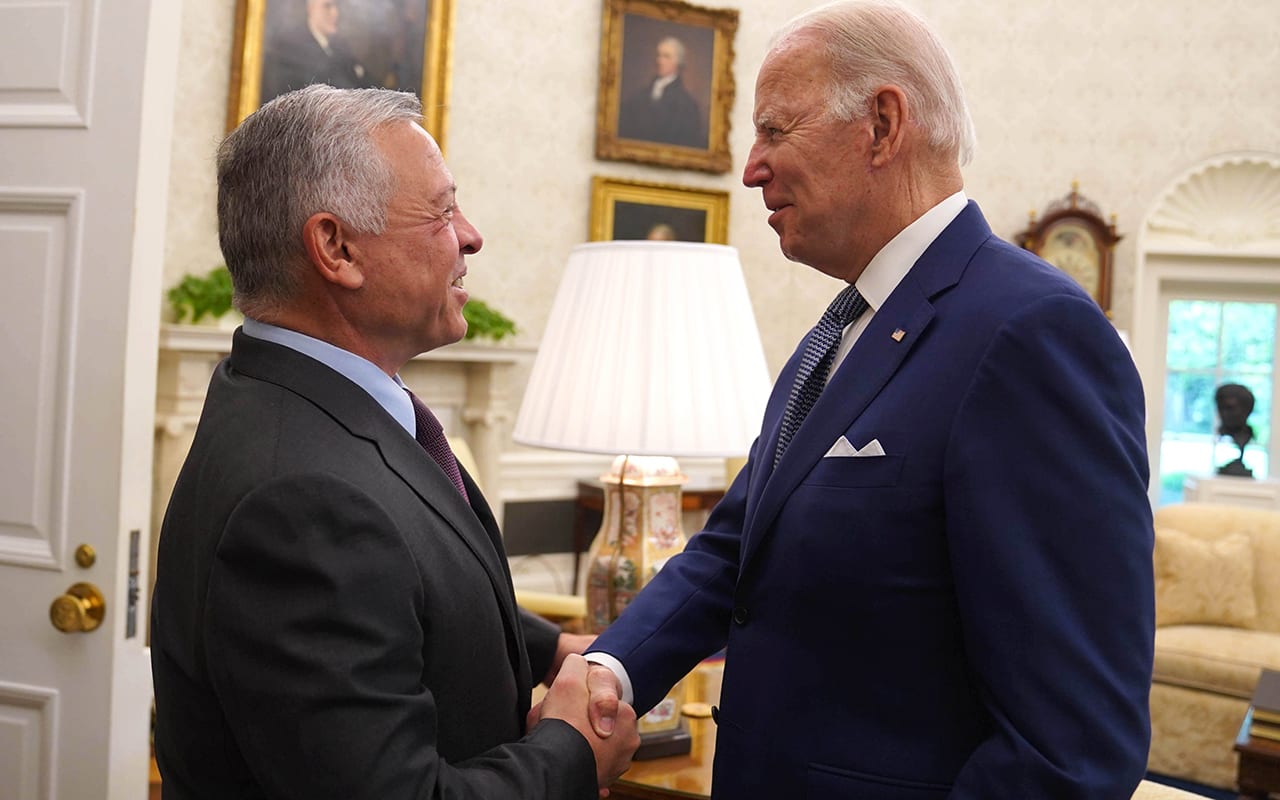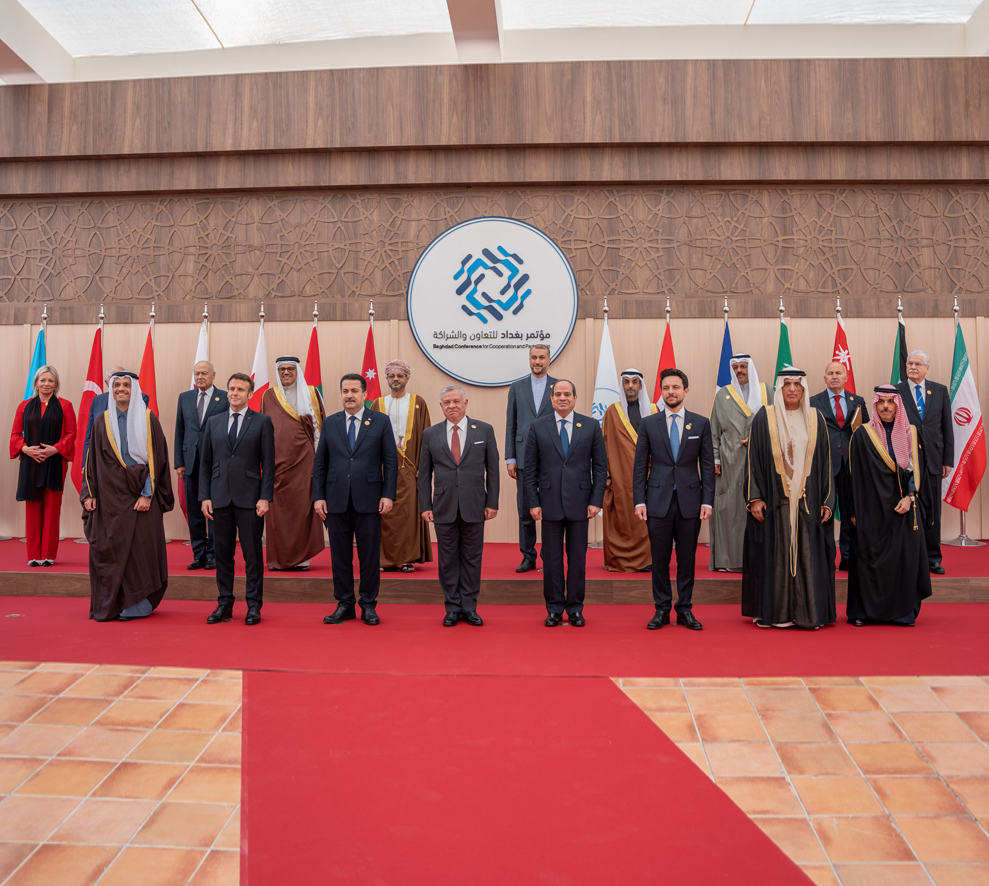Introduction
The first part of the paper talked about the experience of the Muslim Brotherhood in Jordan since its founding in 1945, and through a descriptive and analytical vision which focused on the hybrid mix in the group's practices, ranging from charitable religious entities to political considerations, and the accompanying changes and shifts in the Brotherhood speech from preaching to protesting.
Part II addressed the role of cross-border ideology in the group's partisan and political practices in Jordan and how it reflected on its regional role, while using a narrative and descriptive framework to demonstrate its external cross-border impact.
Thus, Part III of the paper continues to talk about Jordan's official policies and approach towards the group from its inception to the period of the so - called “Arab Spring.”
Jordan's official approach towards the Brotherhood
In previous parts, we have talked in detail about this hybrid and crooked path taken by the Brotherhood in Jordan and how it transformed from an advocacy group that had the support of the full regime, to a political group that uses religion to win support and further the agenda of the Global Muslim Brotherhood organization.
Thus, it began participating in all forms of political life, like joining parliamentary and municipal elections, while working in an organized and systematic way to gain access to civil society institutions, from trade unions to student activism at universities and then the teachers' union.
There's a noticeable connection between the group's engagement in political affairs and its increased passivity towards State policies and institutions, the more it engages in the joints of the State and society (Parliament, trade unions, civil society institutions, universities and houses of worship) the more intense their attack on these institutions becomes. This unrealistic political behaviour has accumulated a sense of distrust in the group, which kept growing rapidly within the State in parallel with the group's tendency to serve and further an unpatriotic agenda.
This behaviour has paved the way for a change in Jordan's overall political approach towards the group, it is noted that the successive governments kept dealing with the group using a "Soft- containment policy," until 2010 and the signs that foreshadowed the so-called "Arab Spring." This policy is dependent on the government's awareness – through the long experience of its entities in dealing with the group – of the Brotherhood being driven by ideological vision that delineates its goals, moving gradually, indirectly and with much political convergence to dominate the country's decision-making sources.
However, the beginning of the escalation between the group and the State preceded the events of the so-called "Arab Spring", and went through several stops, notably the group's rejection of the decision to severe the legal and administrative connection between the two banks in 1988, and the withdrawal of 17 Brotherhood deputies from the treaty voting session "Wadi Arba" for peace with Israel in 1994, and the decision to boycott parliamentary elections in 1997 then again in 1999, after Jordan’s decision to remove Hamas leaders from Jordanian territory and to shut down the movement's offices in the capital Amman, at that time the crisis was moving towards escalation, until 2006 when the situation took a regional dimension with the Brotherhood siding with the so-called “axis of resistance.”
From participation to estrangement
Through the previous introduction, it can be said that the widening gap between the State and the Brotherhood was foreseeable, given the unchanged behavior of the group, and the inability to adjust its course in the country's national interests, in addition to being biased towards serving its patrisan and factional interests.
The relationship between these two sides crossed a milestone in 2010 when the Brotherhood announced a boycott of parliamentary elections at the same time when Jordan was striving with all its energy to avoid the spread of chaos in the region. That year, the group sought to take its demands and emblems to the street, instigating the public opinion against government and parliamentary bodies and taking advantage of the escalating protests in the region. In the light of a turbulent climate within the region, the electoral boycott formed a new phase in the relationship between Brotherhood and State.
In fact, the group did not learn its lesson from the boycott in 1997. It became a heavy burden for the group due to its absence from the House of Representatives and lack of legal influence tools. In 2010, the group reiterated the same action despite the tireless efforts the government made to discourage the group from its decision. All mediation efforts by politicians and officials failed. The group's main objective using this negative behavior was to escalate the political crisis with the government, especially as Jordan witnessed some protests and demonstrations between 2011-2012
The crisis escalated until reaching its peak in 2011, when the Brotherhood's true and hidden intentions were revealed to the State, along with the group’s association with other MB subgroups deployed in the region. The group in Jordan was unable to curb its desire to repeat the subsequent events in Egypt, Tunisia and others, in which it was planning to seize power. The group’s speech in Jordan reflected that desire.
During the same period, the group rejected the government's calls and goodwill offers to give the Brotherhood a political role in coordination with the Ministry of the Interior affairs, as an attempt to control the Jordanians during the events of the so-called "Arab Spring". The group rejected dialogue, or even having six ministers in the government of Ma 'ruf al-Bakhit. Humam Saeed, the renowned leader of the MB said on behalf of the group: “The State is falling behind the current events.”
Despite the claim of leading sources in the Jordanian MB claiming that the group’s Consultative Council “Shura” at its meeting on November 25, 2012 preferred using the emblem "Reform", it is well known to those interested in the affairs of political Islamic groups that the MB’s maneuver of utilizing slogans is one of its policies used to achieve broader goals and agendas. This is well proved by Jordan's security agencies while monitoring the young MB while participating in repeating anti-state slogans, along with hundreds of young men in Amman and other cities after the decision to raise the price of fuels on November 13, 2012. These slogans were chanted until November 17. This action was preceded by an advisory opinion (Fatwa) issued by the Sharia Scholars Committee of the Islamic Labor Front Party – the political arm of the Jordanian Muslim Brotherhood– on February 20, 2011, stating: “Demonstrating against injustice is a legitimate duty.”
The MB in Jordan was not satisfied by these passive roles towards the State, but has increased the pace of escalation and actively participated in guiding the "Jordanian People's Movement" and other movements. The tone of incitement rose in the group's speeches at various platforms, until it began affecting Jordan’s foreign relations. Then, the State responded by arresting the group's Deputy leader, Zaki Bani Arshid in 2014, for abusing the United Arab Emirates through his posts on social media.
In this context, the attitude of former Muslim Brotherhood leader in Jordan Dr. Bassam al-Amoush is worth mentioning, it held the Brotherhood leadership responsible for the deteriorating relations with the State due to MB's leadership lacking political vision, and its attempt to transfer its experience in Egypt after 2011 to Jordan.
Accordingly, on July 16, 2020, the rupture between the State and the MB reached its peak, when the Court of Cassation, which is Jordan's highest judicial body, issued an order to dissolve the “Muslim Brotherhood” for "not legalizing its status", which could be considered an official declaration of political rupture between the State and the MB.
Conclusion
The Muslim Brotherhood in Jordan is facing its most difficult situation since its formation in 1946 due to the hasty and unbalanced policies and internal defections. This deterioration is parallel with what the main “Muslim Brotherhood Group” is going through in dealing with what is known as the International Organization of the Muslim Brotherhood. The group's affiliates were overturned either by elections or by people’s demands as in Egypt, Morocco and Tunisia.
Although the government of Jordan takes a different approach from that of many other Arab governments in dealing with the Muslim Brotherhood Group, the group still faces a major turning point in its course and it’s vulnerable to endless probabilities, especially after the escalation of internal disputes and the secession of a number of its figures, which in turn weakened the group's strength and its level of influence.
The opinions expressed in this study are those of the author. Strategiecs shall bear no responsibility for the views and/or opinion of its author on security, economic, social, and other issues, as they do not necessarily represent the views of the Think Tank.
Keep in touch
In-depth analyses delivered weekly.

Related Analyses:







